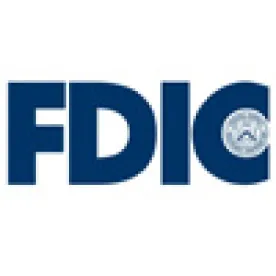At the start of 2015, the Federal Deposit Insurance Corporation (“FDIC”) has issued new guidance for banks and other insured depository institutions (“banks”) regarding brokered deposits. In a series of frequently asked questions, the agency has reminded banks of the legal limitations on such deposits, clarified what constitutes a brokered deposit, and noted reporting obligations regarding them, which apply to all banks.
Background
Bank deposits received through the efforts of deposit brokers, often from customers located far from the market area of the bank receiving the deposit, have had a checkered reputation in the past. Such deposits have often been associated with unsound or rapid expansion of loan and investment portfolios, and moral hazard in the form of imprudently high interest rates offered by problem institutions exploiting the protection of the FDIC deposit insurance.
Since 1989, banks which are not well-capitalized under the prompt corrective action standards of Section 38 of the Federal Deposit Insurance Act (“FDIA”) have been restricted in their ability to accept brokered deposits and in the interest rates that they may pay on them. An undercapitalized bank may not accept, renew, or roll over any brokered deposit. Similarly, an adequately capitalized bank may not accept, renew, or roll over any brokered deposit, unless the bank has been granted a waiver by the FDIC.
Deposit interest rate restrictions apply to banks that are not well-capitalized, in order to prevent them from evading the prohibition on brokered deposits by offering interest rates significantly above market rates. In general, a bank that is not well-capitalized may not offer deposits at interest rates more than 75 basis points above average national rates for deposits of similar size and maturity. The FDIC determines and posts the national averages weekly. A bank operating in a high-rate market area, however, may request a determination from the FDIC to permit it to offer rates in excess of the national cap for local (but not out of area) deposits.
All banks, including those which are well-capitalized, must maintain records and report in their periodic Call Reports regarding the brokered deposits held. Accordingly, the guidance provided by the new FAQs is of importance, even to banks not otherwise subject to legal restrictions in offering brokered deposits.
Brokered Deposits
Under FDIC regulations, brokered deposits are deposits obtained, directly or indirectly, “from or through the mediation or assistance of a deposit broker.” A deposit broker is broadly defined to include a person engaged in the business of placing, or facilitating the placement of, deposits of third parties with banks, or the business of placing deposits with banks for the purpose of selling interests in those deposits to third persons. The regulations exclude a number of specific situations from the category of deposit broker. The new FAQs provide insight on various aspects of these terms, and examples of brokered deposits.
The FAQs make clear, for example, that a third party may be a deposit broker even if that person neither opens deposit accounts on behalf of depositors nor directly places funds in a deposit account. Similarly, an entity may be a deposit broker even if it receives no fee or other direct compensation from the bank receiving the deposit.
The facilitation of placement of deposits is an especially broad concept. The FAQs indicate that it may extend to any action that connects depositors or potential depositors with a bank. This could include referrals from insurance agents, lawyers or accountants. Facilitation also may encompass third parties that directly promote a bank or refer potential depositors (including affinity relationships with non-profit groups) where volume-based fees are involved.
Some banks participate in networks that place funds initially received or offered to one bank with other network banks, to enable the depositor’s funds to be fully insured. For example, if a customer deposits $1 million with a participating bank in such a network, the receiving bank would retain $250,000 (the current maximum insurance amount), and place the excess $750,000 in three $250,000 deposits at three other banks in the network. More complex arrangements, involving third-party sponsors and/or reciprocal deposits, are possible. The FAQs state that both third-party sponsors of such networks, as well as participating banks that place deposits with other banks as agent for their depositors, are deposit brokers, and that each such deposit is a brokered deposit.
Exceptions to Deposit Broker Definition
FDIC regulations contain a list of some ten situations in which persons or entities are not deposit brokers. Among these are exceptions for (a) a bank and its employees (but not affiliates of the bank or their employees), in respect of funds deposited at that bank, (b) a bank’s trust department, in administering a fiduciary relationship not established for the primary purpose of placing funds in insured accounts, (c) the trustee of a pension or employee benefit plan, in respect of funds of the plan, and (d) the trustee of a testamentary account.
The regulations also except from the definition of deposit broker any agent or nominee whose “primary purpose” is not the placement of funds with banks. The FAQs have clarified that the primary purpose exception “applies only infrequently and typically requires a specific request for a determination by the FDIC.”
For example, the FAQs address the issue of general purpose prepaid cards. In some such programs, a company that sells or distributes such cards to the public may deposit the funds received from the cardholders into a custodial account at a bank. The funds in the account are then accessed by the cardholders through use of their cards. In such circumstances, the seller/distributor is a deposit broker, and the FAQ states that the primary purpose exception does not apply.
By contrast, a company might choose to make a rebate to its customers by distributing prepaid cards that accessed a bank account which the company established with its own corporate funds (not funds provided by the cardholders). In such a case, the FAQs indicate that the primary purpose exception would apply, and the company would not be a deposit broker. If, however, a third party operated the program for the company and placed the company’s deposit with the bank, that third party would not qualify for the primary purpose exception, it would be a deposit broker, and the deposit account would be a brokered deposit.
Required Reporting
In its quarterly Consolidated Report of Condition and Income, every insured bank, including those which are well-capitalized and thus not subject to any of the limitations on the offering and acceptance of brokered deposits, must separately report the brokered deposits it holds. Accurate completion of this report thus requires correct categorization of deposits which constitute brokered deposits as specified by the FDIC.
Conclusion
In the view of the FDIC, when properly managed, brokered deposits can be a suitable element in a prudent funding strategy for a bank. Such deposits have in the past, however, been used for imprudent asset expansion and have exacerbated the moral hazard inherent in deposit insurance. As a result, Congress has imposed limitations on brokered deposits in the form of limitations applied to insured institutions that are less than well-capitalized, as well as reporting requirements applicable to all insured institutions.
The FDIC has reminded banks of these issues surrounding brokered deposits, and provided additional guidance regarding them. The new guidance has clarified certain matters, including the scope of the definition of deposit broker, and the FDIC’s view of the limited applicability of the primary purpose exception to that definition. Banks will be well advised to review their existing procedures regarding identification of brokered deposits in light of the new guidance.
1 FIL-2-2015 (Jan. 5, 2015).
2 FDIA Section 29, 12 U.S.C. 1831f. The statute is implemented by FDIC regulations. 12 C.F.R. 337.6.
3 F.A.Q. E.6.
4 For example, see current FFIEC Form 041, Schedule RC-E.




 />i
/>i

